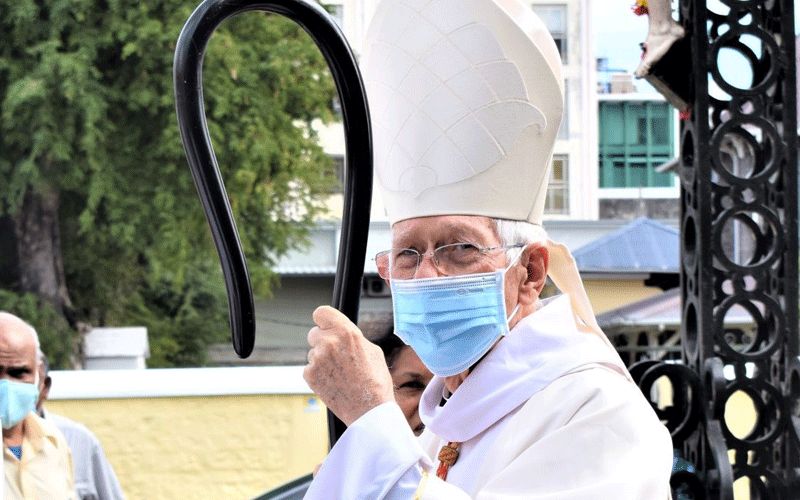Following this oil spill disaster, Mauritius Prime Minister, Pravind Kumar Jugnauth declared a state of environmental emergency on August 6 and appealed for international help as fuel continued to leak from the hull of the ship, which was reportedly stuck in a sensitive area.
In response to the Prime Minister’s appeal, France sent specialists to help the island nation manage the spill, while Britain sent scientists to carry out an impact assessment of the damage the oil spill had caused, and evaluate how to assist on the recovery of the ecosystem.
The international environmental NGO, Greenpeace International, had cautioned against the sinking of the vessel noting that such an action “would risk biodiversity and contaminate the ocean with large quantities of heavy metal toxins, threatening other areas as well, notably the French island of La Réunion.”
“Mauritians had nothing to gain from the MV Wakashio crossing their waters and are now asked to pay the price of this disaster. More pollution further risks their tourist-based economy and fish-based food security,” Greenpeace Africa Senior Climate and Energy Campaign Manager, Happy Khambule was quoted as saying August 19.
On Monday, August 24, Mauritius’ national crisis committee announced that the broken stem of MV Wakashio had been “successfully sunk in the open ocean” to a depth of 3,180 meters, though a smaller section remains stuck on the reef where the shipwreck occurred.
The oil spill is a blow to the island’s tourism sector, which is recovering from the impact of COVID-19 restrictions that have seen a drop in the number of tourists visiting the country’s beaches, reefs, coastal lagoons and mountainous interior such as Black River Gorges National Park.
In his August 25 remarks, Cardinal Piat, a member of the Religious Congregation of the Holy Spirit (Spiritans) welcomed the government's initiatives to “manage the health crisis, overcome the economic crisis and do our best in the face of the disaster that the sinking of the Wakashio constituted for us.”
The Cardinal noted that the ecological disaster “also triggered a great patriotic surge on the part of civil society, which was able to display great generosity, a capacity for mobilization and organization, and great solidarity.”
Such solidarity, the 79-year-old Cardinal said, “reminds us how vital the role of civil society is in a country and how it should be taken into account by economic and political decision-makers.”
“It is only by listening to each other that we can overcome these crises and together build the common good of our country,” the Mauritian Cardinal said and added, “I invite you to pray today so that the Lord gives us to live together in a fraternity concerned with the common good.”








